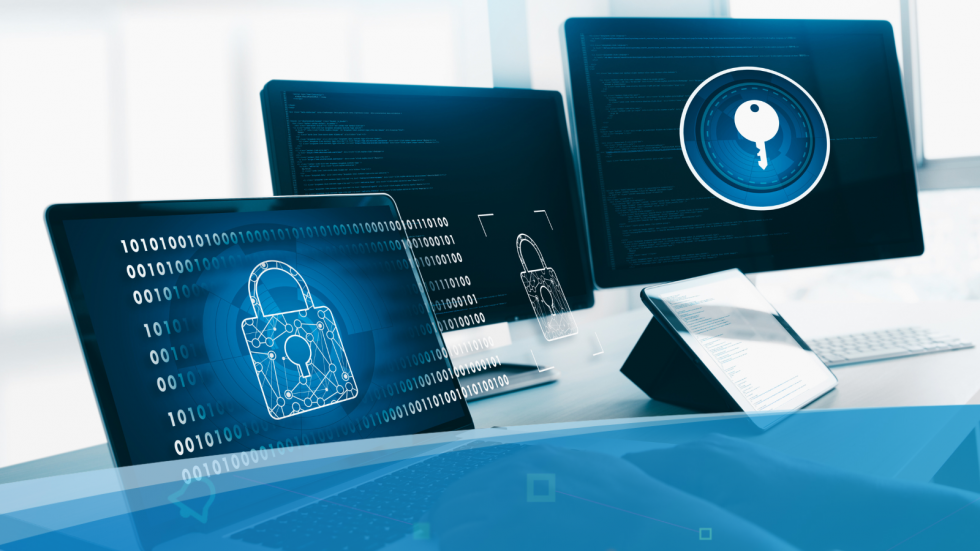Published on 29 July 2022
Endpoint IT security is the management and enablement of IT security to keep your company’s data safe when an employee is using their work device. Whether it is at home and connected to a home network, in the office or anywhere remotely
The pandemic and the mandated work-from-home order resulted in many companies having to make a quick transition from office working to home working. And whilst the quick adaptation is commendable, it happened so quickly that many IT security risks were overlooked when it came to endpoint security.
The number of workers adopting hybrid working has risen from 13% in February 2022 to 24% in May 2022. With 42% reporting that they would predominantly be working from home, this has risen by 12% from April 2021. As remote work continues to be popular and many companies adapting to a hybrid working model, these endpoints need to be secured. Without secure endpoints, you are leaving your company’s data at risk of an IT security breach.
There are a few measures you can take to ensure that when your team are working remotely their endpoint devices are IT secure.
Get your team to manually change any default passwords they were given when purchasing and setting up an internet-connected device. Often internet-connected devices will come with default passwords, these are rarely changed or updated. Not changing the default password leaves that device vulnerable and open to IT security attacks. This is because cybercriminals can easily find a list of default passwords online and run them all against the device until they gain access.
Software updates are frustrating, especially when you are required to do them at the end of the day, but they are important. These updates keep your devices secure and functioning correctly. IT security is the main reason these updates occur. The updates are the result of an IT security vulnerability being discovered and needing to be fixed before a cybercriminal can exploit it. It is important to remind your remote team to carry out all updates their devices require.
MFA adds an extra layer of IT security for your remote team when accessing company files and data. This will require an employee to verify that they are the person attempting to log into their account using either a code or biometric. Make sure to read our blog about MFA here.
Some departments that are working remotely may be handling highly sensitive data, for example, Finance or Human Resources data. If that data was breached it could be damaging to your company. It is best practice, when accessing this data outside of a company network, to use a VPN for added IT security. This is particularly important when working with open-access Wi-Fi.
Most mobiles and computers come with basic antivirus software already installed, but this is not enough to protect your company devices from IT security attacks. Using an Endpoint Protection Platform (EPP) can keep your IT security measures up to date and evolve with the changes in the threat landscape, as well as make it easier to investigate if a breach does occur.
Wherever your employees are remotely working they will at some point need IT support, this could be small or something more significant. Your IT support team is going to need to access those devices. This is where something like Remote Monitoring and Management (RMM) tools are essential to your IT department, and many IT Managed Service Providers already have this in place. RMM allows your IT Team to monitor all work devices and ensure that they are up to date as well as running scans to find any issues: improving and strengthening your IT security.
Endpoint device IT security for your remote workers is an important thing to invest in when it comes to keeping your company’s data secure. 68% of companies have experienced one or more endpoint attacks, these attacks have successfully managed to steal data. And 81% of companies had had an attack involving malware, with ransomware being the most favourable one. Cybercriminals are continuing to take advantage of the quick move to remote working. By securing your endpoint devices and making sure they are fully protected you can defend your company’s data from an IT security breach.
If you would like more information about the IT security risks associated with endpoint devices and home networks read our eBook: The Security Risks of Alex’s “Other” Laptop
To fully protect your endpoint devices from cyberattacks book a meeting with us today.

© 2024 Bluebell IT Solutions - All rights reserved
SEO and Website Design by Loop Digital